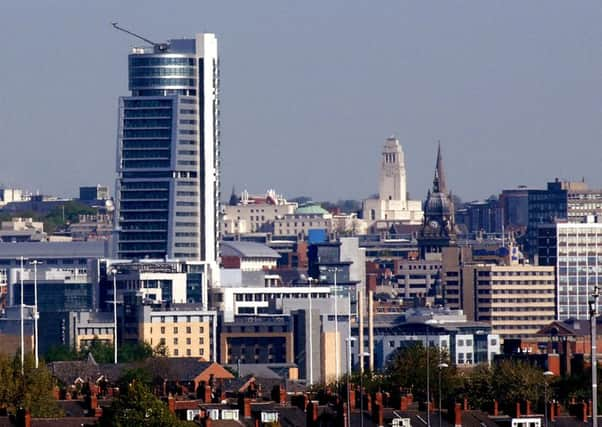YP Comment: Devolution self-interest is hitting Yorkshire hard


However deals struck in haste can come up at a price – the agreement for Sheffield and South Yorkshire, announced prior to last year’s Tory conference, is already beset by difficulty and loss of confidence on the part of some concerned.
This is why it is unhelpful of Dave Green, the Labour leader of Bradford Council, to accuse unnamed Tory MPs of blocking a deal for West Yorkshire and the wider Leeds City Region after accusing his rivals of attempting to “gerrymander boundaries for political self-interest over economic growth”. Though he is a passionate advocate for Bradford, he could be accused, in return, of putting his city before other considerations. After all, this process should not be about party politics as council leaders in the West, North and East Ridings struggle to reach a consensus– it should be about the greater good of the whole county.
Advertisement
Hide AdAdvertisement
Hide AdAnd for the benefit of Coun Green and those who share his outspoken view, Bradford – and West Yorkshire – would be a much poorer place if businesses could not export goods via the Humber’s ports, or if the area was not surrounded by stunning countryside. Equally North and East Yorkshire’s prospects do depend in part on the ability of innovative cities, like Leeds and Sheffield, to harness new investment, and secure the necessary infrastructure improvements, so that this county can attract a new generation of entrepreneurs and wealth-creators. The sooner the political self-interest on both sides end, the greater the likelihood of an outcome which truly empowers Yorkshire once and for all.
Making the grade: Academies must be scrutinised
GIVEN that local education authorities have, for years, been judged by Ministers on the exam results of schools under jurisdiction, it is perverse that this principle has not previously been applied to academy chains. After all, the whole thrust of Tory policy is to turn under-performing schools into academies, and such like, so they can be run by groups free from local government control.
However the benefits have not been clear-cut, certainly in terms of attainment, and now Ofsted’s chief Sir Michael Wilshaw has expressed misgivings about the governance of the School Partnership Trust Academies, Yorkshire’s largest academy chain, and other such organisations.
The inspector’s findings are perturbing. Sir Michael says it is difficult to justify senior staff being paid more than the Prime Minister – this is money being denied to pupils – and that many of the weaknesses are comparable to the worst-run LEAs.
Advertisement
Hide AdAdvertisement
Hide AdGiven the Government’s desire for more schools to be run under this model, it is now imperative that the culture, ethos and management of these academy chains is held up to full scrutiny. Anything less will leave the Tories open to the charge that they’re putting political dogma before the best interests of pupils and the need to gain even better exam results.
A Hull of a bridge: North-South double standards
YOU could not make it up. Even though Hull is effectively home to the Humber Bridge which was the largest single-span suspension bridge in the world when it opened in 1981, it is proving nigh-on impossible to build a footbridge over a busy dual carriageway in time for next year’s City of Culture celebrations.
Yet, while the Government’s priority is, inevitably, Boris Johnson and Joanna Lumley’s £60m vanity garden bridge over the Thames in the heart of London to improve pedestrian access in an area already blessed by countless river crossings, the importance of the Hull scheme – a very modest £11.5m in comparison – cannot be under-estimated because it will provide a safe route from the heart of the city, over the busy A63 Castle Street, to the waterfront area which is to be a focal point for many cultural events.
The Highways Agency’s dither is unacceptable. If this was London, it would have been built on time, and without quibble. Such double standards have simply made the North-South divide – that proverbial political bridge over troubled waters – even wider and even more difficult to span.